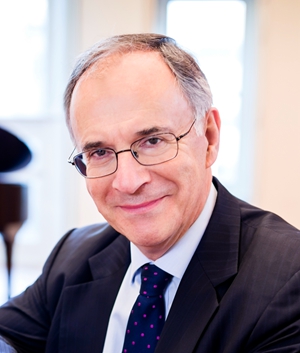Sir Clive Gillinson
Carnegie Hall
Executive and Artistic Director
Sir Clive Gillinson has been Executive and Artistic Director of Carnegie Hall since 2005. In this role, he is responsible for developing the artistic concepts for all Carnegie Hall presentations, and oversees management of all aspects of the world-renowned venue, including the operations of Carnegie Hall’s Weill Music Institute, which develops wide reaching music education and social impact programs for people in New York City, nationally, and internationally. Under Sir Clive’s leadership, the Hall has greatly expanded its programming, including presenting more than a dozen large-scale multicultural citywide arts festivals across New York City; conceptualizing Ensemble Connect, a fellowship program for the finest US-based post-graduate musicians; and launching three celebrated national youth ensembles—the National Youth Orchestra of the USA, NYO2, and NYO Jazz—which bring together the brightest teen musicians from across the country each summer to train with top professionals and perform with leading artists on the world’s greatest stages.
Sir Clive began studying the cello at the age of eleven and played in the National Youth Orchestra of Great Britain. He went to London University to study mathematics, but realizing that he wanted to make music his life, then entered the Royal Academy of Music, where he gained a Recital Diploma and won the top cello prize. After graduating, he became a member of London's Philharmonia Orchestra. In 1970, he joined the London Symphony Orchestra cello section and was elected to the Board of Directors of the self-governing orchestra in 1976, also serving as Finance Director. In 1984, he was asked by the Board to become Managing Director of the LSO, a position he held until taking his leadership role at Carnegie Hall. Among his many career accomplishments, he was appointed Knight Bachelor in the Queen's Birthday Honours List 2005, the only orchestra manager ever to be honored with a Knighthood.
Sir Clive is co-author of Better to Speak of It, published in 2016, which offers insight into how creativity can be applied with substantial results.


